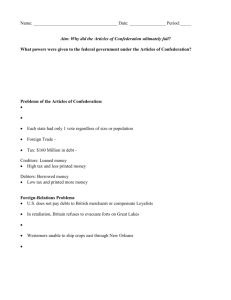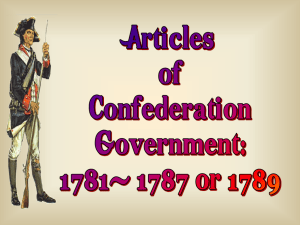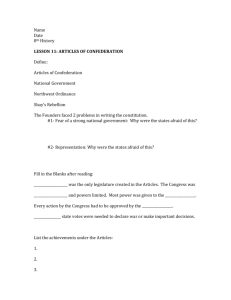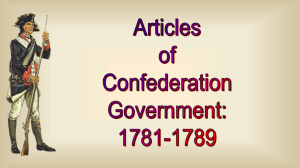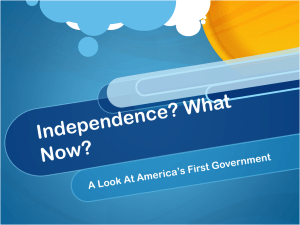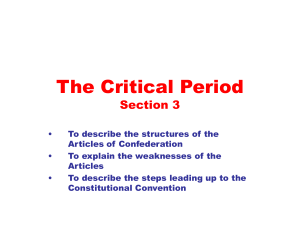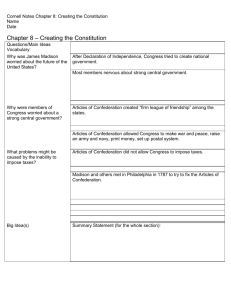Ch 2.3
advertisement
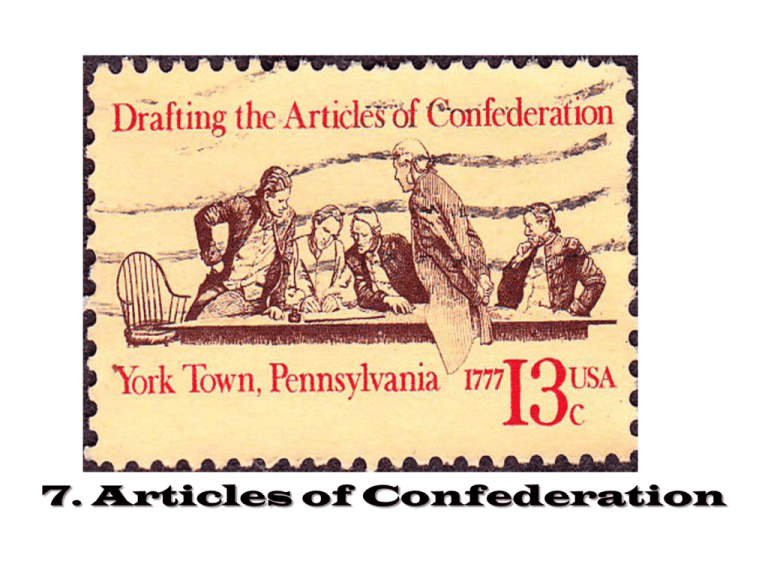
7. Articles of Confederation “a declaration of independence, a call to form foreign alliances, and "a plan for confederation." The Articles basically continued the structure and operation of government as established under the Second Continental Congress March 1781 all 13 states had ratified, or approved, the Articles of Confederation. The states wanted a confederation, or “league of friendship” The delegates did not want to give too much power to the central Government. *unicameral (one house) Congress *no president Committee of the States managed government when Congress was not assembled No federal court system, Congress settled disputes among states Each state had one vote in Congress, 13 votes, to pass laws you needed 9/13 votes to pass Government Under the Articles Unicameral- or singlechambered Congress Congress had no power to levy taxes. Congress had no power to regulate trade. Congress could not force anyone to obey the laws it passed. Laws needed approval of 9 of the 13 states to pass. Amending Articles required consent of all states. Central government had no executive branch. Government had no national court system. Achievements of the Articles of Confederation Establishment of a fair policy for the development of the lands west of the Appalachians The individual states ceded, or yielded, their claims to these territories to the central government This provided a priceless national asset that became a strong force for national unity. Congress enacted land ordinances, or laws that provided for the organization of these territories Northwest Ordinance established the precedent by which the United States would expand westward across North America by the admission of new states, rather than by the expansion of existing states. Peace Treaty with Great Britain in 1783 "Full faith and credit shall be given in each of these States to the records, acts, and judicial proceedings of the courts and magistrates of every other State." established fair policy for developing Ordinance of 1787 – establishes western lands Northwest Method for creating new states and admitting them to the US forged a peace treaty with Great Britain set up executive departments of Foreign Affairs (State), War, Marine (Navy), Treasury Shays' Rebellion was an armed uprising in western Massachusetts from 1786 to 1787. The rebellion is named after Daniel Shays, a veteran of the American Revolutionary War. Quarreling began over boundary lines and tariffs paid to other states, and states began trading directly with foreign nations. The government owed huge debts to other nations and to soldiers who fought in the Revolution, yet had no power to raise money from the states. The economic depression of 1786 had left many farmers and merchants with great personal debts and no way of repaying them. – Led to Shay’s Rebellion

